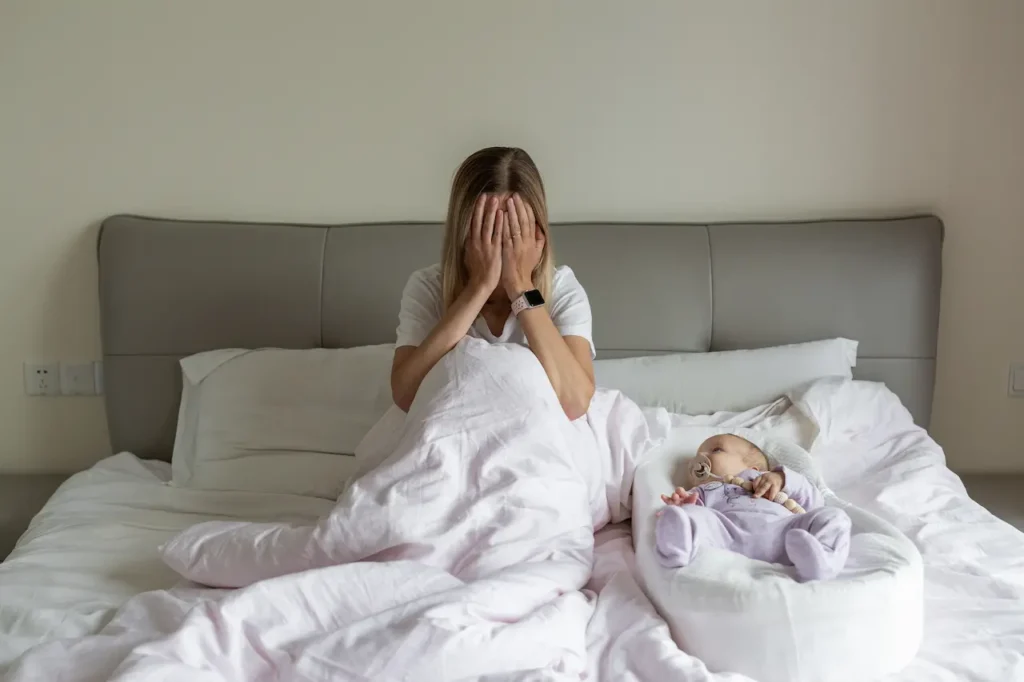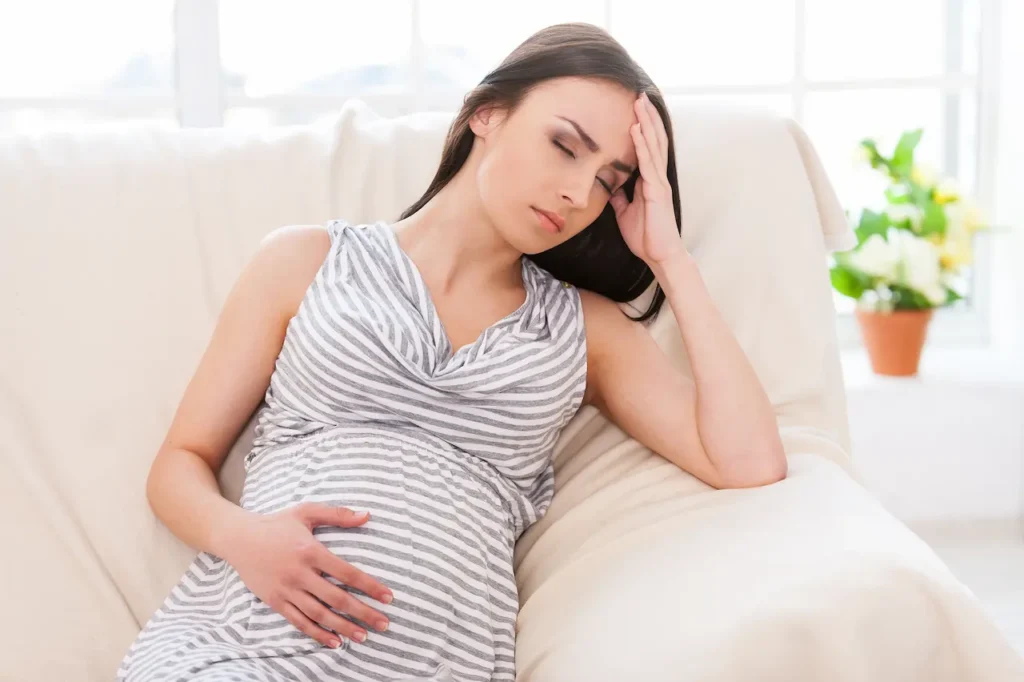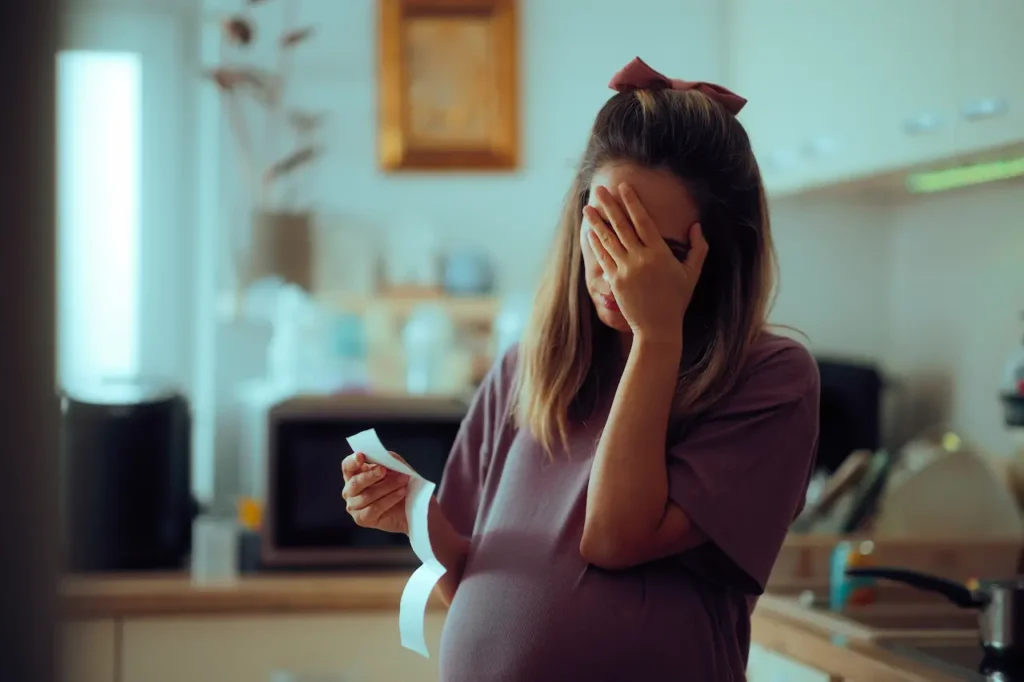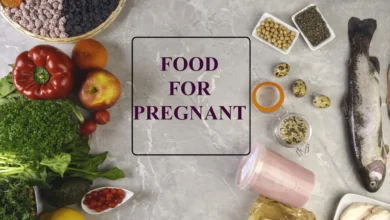Postnatal Depression Can Last for Years
New Research Sheds Light on the Long-Lasting Impact of Postnatal Depression
These findings coincide with a growing body of research that suggests more mothers may be at risk for perinatal anxiety and depression amid the COVID-19 Pandemic as screening rates decline and risk factors such as family violence, isolation, and less access to emotional and practical support increase.
The study was published in the journal Children’s Health. It tracked nearly 5,000 mothers for three years in the US. Researchers at the National Institute of Health evaluated women’s symptoms four months after delivery and again one, two, and three years later.
These results show that you are not alone if your postnatal depression symptoms persist long after you have blown out the candles on your baby’s first birthday. One-quarter of mothers experienced elevated depressive symptoms three years after childbirth.

Lead author Dr Diane Putnick said, “Our study suggests that six months might not be enough time to gauge depression symptoms.” These long-term data will help us better understand the mother’s mental well-being, which is crucial to the development of her child.
Over the three-year study, women with conditions like mood disorders or gestational diabetes were more likely than others to experience higher levels of depression symptoms.
The authors conclude that screening for maternal depression after the postpartum period is warranted. This is especially true if there are mood or diabetic disorders.
Why is it Important to Repeat Screening
At present, the Australian Clinical Practice Guidelines on Mental Health Care during the Perinatal Period suggest that women be screened between 6-12 weeks following birth and repeat the screening at least once in the first 12 months.
The findings, according to Dr Nicole Highet of the Centre of Perinatal Excellence, reinforce the importance of screening parents for mental health problems, such as anxiety, depression, and postnatal psychosis, at multiple time points. This is so that they don’t become vulnerable.
The pandemic is causing increased stress and pressure on women and men as they transition into parenthood.
Dr Highet says, “It has been a difficult year for new and hopeful parents, with the changes in IVF services and fewer antenatal appointments, as well as less support after and during birth.” Women are complaining that they are not being screened because physical health is often given priority over mental wellbeing, and the demand for services and supports has skyrocketed.
There is Help (and Hope) at Hand
COPE is a leader in addressing some of these issues by expanding the capabilities of its leading digital screening tool, iCOPE, which allows remote screening. Women can now be screened at home for perinatal mental conditions and risk factors.
The Commonwealth has funded the organization to launch its national referral database, eCOPE. It is designed for both health professionals and people seeking treatment for perinatal conditions.
Dr Highet says, “It’s hard to know how to get help when you have emotional or mental health issues that may arise before, during, or after pregnancy. “Our e-COPE Directory will help families find support in their area, including telehealth services, which has been extended until next.
Postnatal Depression
Many parents suffer from postnatal depression after the birth of their child. More than one out of ten women will experience postnatal depression in the first year after childbirth. It can also affect partners and fathers.
It’s vital to get help as soon as you suspect that you might be suffering from depression. Symptoms can persist for months, or even worsen. This will affect you, your child, and your entire family.
Most people can recover fully with the right support.
Depression During Pregnancy
Depression is a common problem during pregnancy and more than ten percent of women experience it. Anxiety, panic attacks and psychosis may also develop during or after pregnancy.
Postnatal Depression Symptoms
It’s common for women to experience “baby blues” in the first two weeks after giving birth.
Postnatal depression is diagnosed when symptoms continue beyond this period or start later. It can begin at any time within the first 12 months after birth.
You or someone you love may be experiencing depression if you notice:
- A persistent and depressed mood or feeling
- Loss of interest and enjoyment in the world
- Lack of energy and fatigue all the time
- Sleeping problems at night or feeling tired during the day
- Finding it hard to care for yourself and your child
- Refusing to contact other people
- Problems with concentration and decision-making
- Fearful thoughts, for example, thinking about harming your child
Postnatal depression can be gradual, and many women are unaware they have it.
Remember this:
- A range of support and help is available, including talking therapy
- Depression is a disease like any other
- It’s not your problem that you’re depressed. Anyone can be affected by depression.
- Being depressed doesn’t mean you are a bad parent
- It does not mean that you are going crazy
- Your baby will never be taken from you. Only in extreme circumstances are babies taken into care.

Treatments for Postnatal Depression
Postnatal depression is a frightening and lonely condition, but there are effective treatments and support available.
Included are:
- Self-help: You can help yourself by talking to family and friends and asking them what they can offer to help. Also, you can make time to rest and do the things you love, get as much sleep at night as possible, exercise regularly, and eat a nutritious diet.
- Talking therapy – a GP can recommend a self-help program or refer you to a course of psychotherapy, such as Cognitive behavioral therapy
- Antidepressants may be prescribed if other treatments are not working or if the depression is severe. Your doctor can prescribe an antidepressant that is safe to take when breastfeeding
Help and advice can be obtained from local and national organizations such as the Association for Post-Natal Illness and Advice and Support for Pre and Postnatal Depression (PANDAS).
Causes and Symptoms of Postnatal Depression
Postnatal depression has a complex cause that is not fully understood.
You may be more susceptible to postnatal depression if you have certain factors. They include:
- A history of mental problems, especially depression, in early life
- Mental health issues during pregnancy
- You are alone and have no family or close friends to help you
- A difficult relationship with your partner
- Recent stressful life events such as a death
- Traumas such as domestic violence can cause physical or mental trauma
Even if none of these are true, a new baby can be a life-changing experience that can trigger depression.
It can take time for a person to adjust to being a parent. It can be exhausting and stressful to look after a newborn.
Preventing Postnatal Depression
You can keep healthy during pregnancy by maintaining a good lifestyle and talking to someone who can offer support and advice.
Attending antenatal classes or making friends with new mothers and pregnant women can be beneficial.
Talk to your GP or mental health team if you’re pregnant or considering getting pregnant.
- Do you have a mental health problem or a history of depression
- Someone in your family (for example, your mother or your sister) has experienced mental health issues after childbirth
You will be able to receive the best treatment.
A midwife can help you with your mental health or refer you to specialist services, if necessary. Your doctor will make sure that you are seen regularly within the first few days after giving birth if you have a mental illness while pregnant.
During your pregnancy, the mental health team will be working closely with you.
Myths About Postnatal Depression
Many myths surround postnatal depression, which is commonly misunderstood.
Included are:
- Postnatal depression is not as severe as other forms of depression. It’s just as bad.
- Postnatal depression is not caused solely by hormonal changes. It can be caused by a variety of factors.
- Postnatal depression will pass soon – unlike “baby blues”, it can persist for several months if untreated, and in some cases can even become a problem.
- Research has found that postnatal depression not only affects women. Up to one in ten new fathers are depressed after giving birth.
What is the Difference Between Postnatal Depression and Baby Blues?
Around 3-10 days after the birth, you may experience a period of emotional distress and tears.
You are likely dealing with a lot of new demands and sleeping little. Feeling emotional and overwhelmed is normal. This feeling is usually temporary and manageable.
Postnatal Depression (PND) can be a deeper, longer-lasting depression. It usually occurs within six weeks of birth. This can occur gradually or suddenly. It can be mild or very severe. It’s vital to be aware of the warning signs.
You might also like: What is Post-Weaning Depression?
Signs and Symptoms of Postnatal Depression
Feeling:
- Tearful or downcast
- Restless, agitated, or irritable
- You feel guilty, worthless, and low on yourself
- Feeling empty and numb
- Isolated, unable to relate to other people
- You find it difficult to enjoy life or the things that you normally like.
- Feelings of disreality
- Self-confidence and self-esteem are lacking
- Hopeless and dejected
- You are hostile or indifferent towards your partner
- Your baby is hostile or indifferent towards you
- Suicidal
You might also discover that:
- Lose concentration
- Even when you are allowed to sleep, it is difficult for you to do so
- Reduced appetite
- Lack of interest in sex
These experiences are not uncommon during pregnancy or after becoming a mother. You can mention these symptoms to your doctor if you are concerned that they could be a sign of a more serious condition.

Treatments for Postnatal Depression
It can be hard to express your struggles as a new parent or expecting parent. You might feel:
- Be happy and excited
- You’re worried that you are a bad parent or others will judge your parenting abilities.
- You should be more focused on your child than on yourself
- You should be able to manage everything.
- If you are open about your fears, someone may take your child away.
You should remember that mental health problems are not your fault. There are many treatment options available, including antidepressants, therapy, and self-care advice for new mothers and pregnant women.
Therapy and Counseling
You may be offered therapy by your doctor, such as cognitive behavioral therapy (CBT). This is a short-term therapy that’s recommended for treating depression. Find out more about therapy, counseling, and finding a therapist.
You can try alternatives to therapy if there is a long waiting list for talking therapies. You can use these to manage your mental well-being while you wait for talking therapy.



